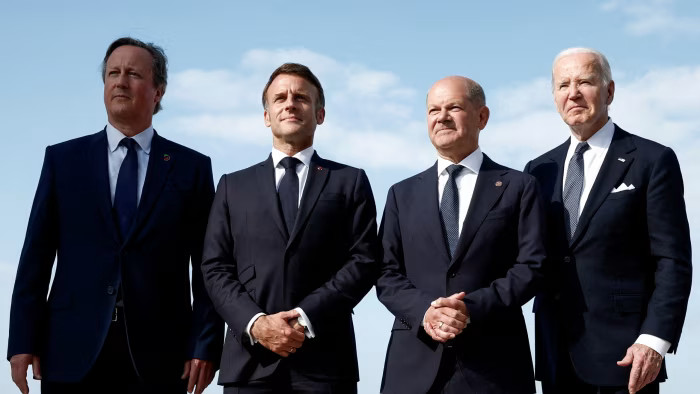Rishi Sunak, the Conservative prime minister, has issued an apology for his early departure from D-Day commemorations in France. He was criticized for returning to the UK to record an interview attacking Labour’s alleged tax plans.
This incident has caused significant damage to Sunak’s reputation. He missed a memorial event on Omaha Beach to repeat his contested claim that Labour would raise taxes by £2,000 per household.
Labour accused Sunak of a “dereliction of duty,” while Liberal Democrat leader Sir Ed Davey said he had “brought shame” on the office of prime minister.
On Friday, Sunak apologized, stating on X, “The last thing I want is for the commemorations to be overshadowed by politics. I care deeply about veterans and have been honoured to represent the UK at events in Portsmouth and France over the past two days. After the British event in Normandy, I returned to the UK. In hindsight, it was a mistake not to stay in France longer, and I apologise.”
Sunak reiterated his claims about Labour’s tax plans in an ITV interview recorded after he left France. When asked if he was willing to lie to stay in power, Sunak said, “No.” He characterized Starmer’s claim that he had lied over the £2,000 tax allegation as “pretty desperate stuff.”
Sunak attended an event at Ver-sur-Mer in Normandy on Thursday but did not attend a later ceremony at Omaha Beach. Lord David Cameron stood in for Sunak at the ceremony, appearing alongside world leaders including US President Joe Biden and French President Emmanuel Macron.
Davey said, “One of the greatest privileges of the office of Prime Minister is to honour those who served, yet Rishi Sunak abandoned them on the beaches of Normandy.
Jonathan Ashworth, Labour shadow cabinet minister, said, “The prime minister skipping off early from D-Day commemorations to record a television interview where he once again lied is both an embarrassment and a total dereliction of duty.”
On Thursday, the Office for Statistics Regulation criticized Sunak for claiming that Labour would put up taxes by £2,000 per household without explaining that this was a cumulative figure spread across four years.
Treasury permanent secretary James Bowler also disagreed with Sunak’s assertion that the number was based on independent analysis of the Labour party’s plans by civil servants.


![Robert Kennedy Jr leaves the New York Stock Exchange following a ceremony with President-elect Donald Trump on December 12 [Julia Demaree Nikhinson/AP Photo]](https://esbecgroup.com/wp-content/uploads/2024/12/Outcry-after-RFK-Jr-linked-to-effort-to-nix-US-approval-for-polio-vaccine.jpg)







